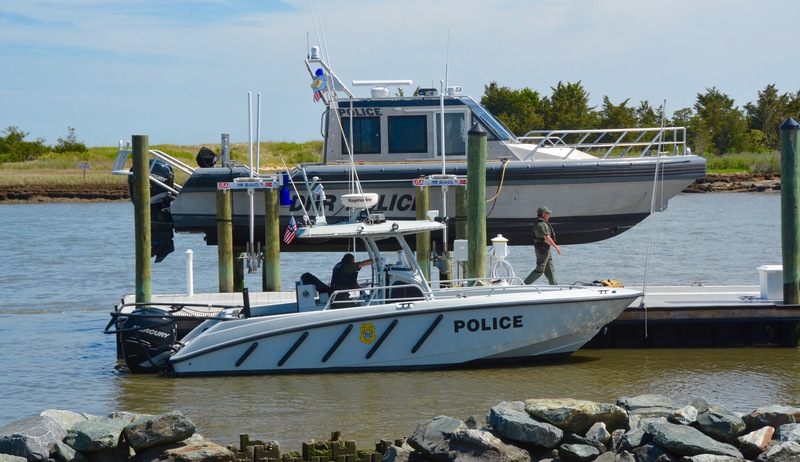Delaware is among the safest places in the nation to boat.
Officials gathered May 15 in Lewes to draw attention to the effort made by state agencies to keep the state's waterways safe. At the same time, the Lewes-Rehoboth Canal was filled with boats taking part in a flounder tournament.
“Delaware’s waterways are among the First State’s top tourism destinations, and we can be proud that our state consistently has one of the lowest boating accident rates in the country,” said Delaware Department of Natural Resources and Environmental Control Deputy Secretary Kara Coats at an event to kick off National Boating Safety Week.
Boating safety education, outreach and enforcement of regulations are the keys to the state's safety record, Coats said.
|
|
||||
Division of Fish & Wildlife Director David Saveikis said officers stress compliance above enforcement whenever possible.
Chief Robert Legates of the Division of Fish & Wildlife Natural Resources Police said in 2014 the state had one boating-related fatality and 24 reportable boating accidents.
State law requires children age 12 and younger wear a life jacket while underway in any vessel on Delaware waters, and statistics support their use.
According to 2014 U.S. Coast Guard statistics, 418 people drowned in recreational boating accidents nationwide. Nearly three-quarters of all boating-related fatalities nationwide drowned – and more than 80 percent of them were not wearing life jackets.
Alcohol use is the leading contributing factor in fatal boating accidents and was listed as the leading factor in 21 percent of the 610 boating-related fatalities in 2014.
Recreational boat operators are permitted to consume alcohol, but the same blood alcohol limit used to measure intoxication in automobile drivers applies to boat operators: 0.08 or above is legally intoxicated.
Taking a boating safety course can also improve skills and reduce the chances of an accident. Coast Guard statistics show that in states where instructional data was available, 80 percent of reported fatalities occurred on boats where the operator had not received boating safety instruction.
Under Delaware law, all persons born on or after Jan. 1, 1978, must successfully complete a boating safety course in order to operate a boat in Delaware waters, including personal watercraft.
Participating in the event with Coats and Saveikis were Fish & Wildlife Natural Resources Police officers, Lewes Republican Sen. Ernie Lopez, Milton Republican Rep. Steve Smyk, Lincoln Republican Rep. Dave Wilson, U.S. Coast Guard and USCG auxiliary members, USCG auxiliary volunteer boating safety instructors and volunteer boating safety instructors with the U.S. Power Squadron’s Nanticoke Sail & Power Squadron of Seaford.
Delaware’s 8-hour basic boating safety course, which fulfills the state’s mandatory boating safety course requirement, is offered in varied locations statewide in one to four sessions. Several providers also offer a Delaware-approved online version of the boating safety course. Boaters who complete the course receive a boating safety certificate, which, for anyone required to take the course, must be carried with them while boating.
For more information, including Delaware’s boating safety class schedule, access to the online Delaware boating handbook and other boating information, click Delaware Boating Safety, or contact Cpl. John McDerby at 302-739-9913 or email john.mcderby@state.de.us.



























































